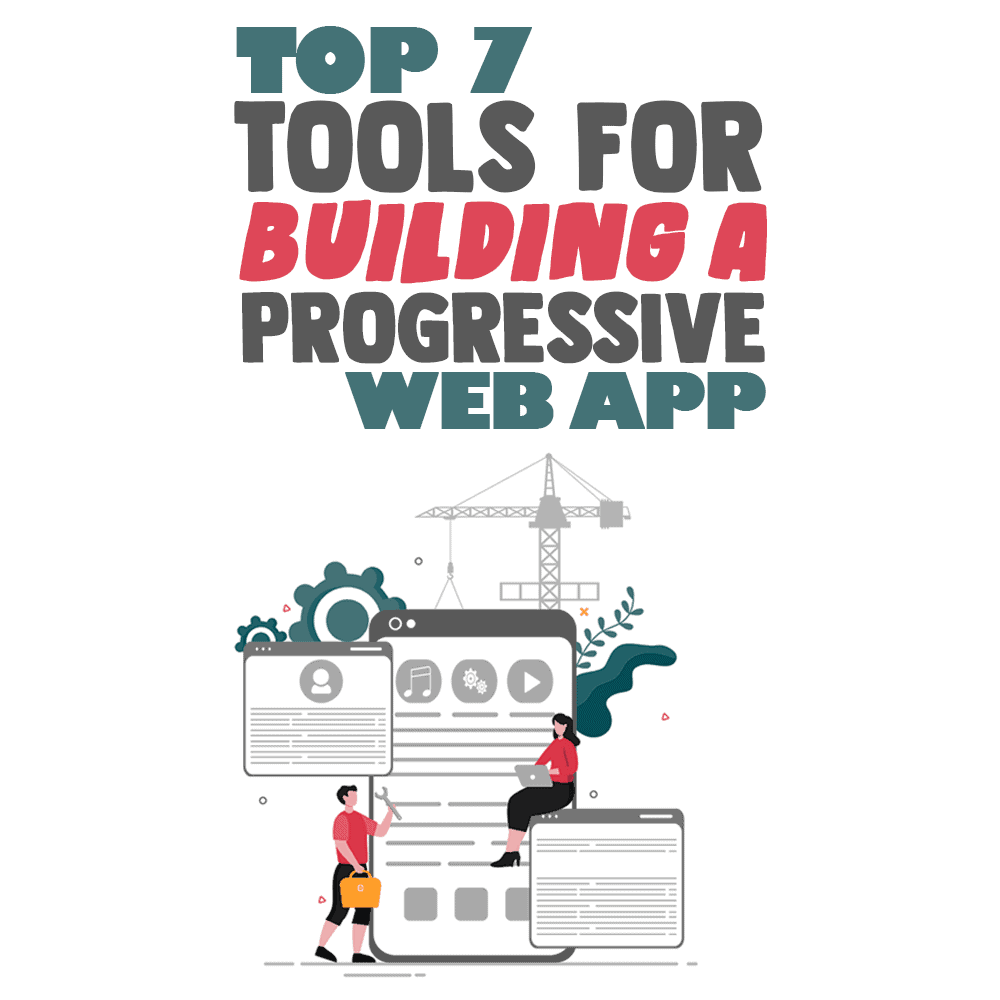
The popularity of progressive apps is due to their fast-loading capability, offline accessibility, and the enhanced performance and features they offer. Progressive web apps (PWA) can leverage device capabilities like the camera, storage, microphone, etc. to provide an excellent user experience.
Apart from these benefits, PWA offer various advantages to businesses. Due to the unique benefits of PWAs, leading businesses worldwide have opted for PWA development. Pinterest, Facebook, and Spotify are some of the most recognized PWA examples.
If you are interested in building a progressive web app for your business, then you should be familiar with the PWA tools necessary for development. To make your task easy, in this post I have curated some useful tools for a successful PWA development.
Popular Tools for Creating Progressive Web Apps
Lists are generally both subjective and non-exhaustive. However, the following seven tools are extremely popular and useful—indeed, essential—for creating progressive web applications.
React
React is basically a JS library created by Facebook back in 2013. It is useful for developing single-page, as well as multi-page, web apps.
Out of the many PWA development tools available on the market, React is an excellent choice because it is supported by Facebook and offers excellent stability.
Additionally, React JS follows a component-centric approach for development, wherein the components are built using JavaScript, meaning you can readily reuse them. It will save you a lot of time and money.
Using React, developers can create progressive web apps that work flawlessly across different devices, operating systems, and browsers.
Polymer
Another popular framework; this one is built by Google. It is one of the best progressive web app tools for building reusable components and syncing data with the devices.
Furthermore, it also provides you with a range of templates and excellent documentation to help your process flow more smoothly. The templates provided in this framework render the initial route and provide important resources for that route.
This open-source tool simplifies the PWA development process and uses a PRPL pattern for optimal delivery of the app for the specific device.
Here, the PRPL pattern stands for:
- Push essential resources for the initial route.
- Render initial route.
- Pre-cache remaining routes.
- Lazy-load and built the last routes on demand.
Magento PWA studio
Magento is a popular open-source e-commerce platform written in PHP. It is used to create responsive websites.
Magento PWA Studio is a toolkit that developers can use to build high-performing progressive web apps.
If you want to build a PWA storefront on top of a Magento responsive website, then this toolkit is ideal for that job. It is customized for the Magento 2 platform, and it comes with extensive libraries and advanced tools that sync with the platform’s principle of extensibility. This means that developers can use Magento PWA Studio to convert any website built using Magento 2 version into a progressive web app.
Furthermore, the release pattern of the Magento PWA studio is similar to that of Magento 2. Therefore, you will never face the problem of synchronizing your PWA whenever there is a development or architectural change in the Magento 2 version.
PWA Builder
Microsoft has created PWA Builder, which helps in converting websites to progressive web apps with minimum development. The PWA Builder website instantly identifies whether a website supports PWA or not—you only have to insert the URL of your website into the PWA Builder.
The PWA tool further produces a custom web manifest and a few versions of the service workers. Moreover, the app allows you to test your progressive web app with minimum effort.
Using the PWA builder is easy, and it comes with a ton of features. For instance, it allows you to have a backup of your offline copy, has a WebKit, and much more.
Webpack Module Bundler
One of the required features of PWAs is that they must work well with a poor internet connection or in disconnected mode. This open-source module bundler is one of the excellent PWA tools used for implementing offline functionalities in a website.
The tool was developed for building dependency graphs between CSS elements, JS files, fonts, and images. The ultimate purpose of these graphs is to reduce dependency management. It will further decrease server calls and support the static elements to load faster.
Sadly, the tool doesn't have proper documentation and has a high learning curve. Therefore, it is meant for experienced developers only.
Lighthouse

This is a performance monitoring tool that gives you a detailed report containing a range of analytics that allow you to test your site, and if you find a problem, it gives you directions on how to solve it.
Some of the analytics Lighthouse provides include whether the app can load offline, the page load performance, whether the site is progressively enhanced, how secure is the network connection, can the user add it to the home screen, does the address bar color match that of the brand, whether the design is mobile-friendly, and much more.
Furthermore, each of these analytics comes with tips on using specific technologies to improve the progressive web app even further.
SuperPWA
This builder tool allows you to create PWA on the top of your WordPress website. It helps in streamlining the development process, thereby making it simpler for inexperienced developers who want to create progressive web apps.
This simple tool is very user-friendly, helps you to develop high-quality offline pages, and makes it easier to add offline functionality to your site.
It offers various features like simple configuration, comprehensive documentation, responsive support, and more. All developers can benefit from this tool to create progressive web apps that work offline efficiently.
PWA Tools Enhance the Developing Process
In this post, we saw some of the best PWA tools available on the market. From React, suitable for single-page as well as multi-page web apps, to Polymer and Lighthouse—created by Google—and from Microsoft’s PWA Builder to SuperPWA for WordPress, it’s certain you will find something in this list to suit your needs.
Various leading businesses worldwide utilize these tools to create user-friendly and scalable progressive web apps. Why not you!
